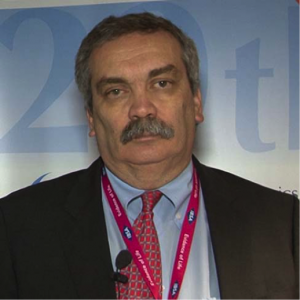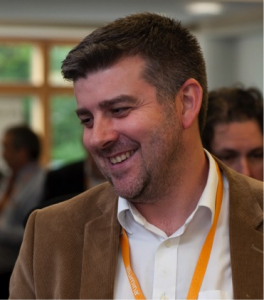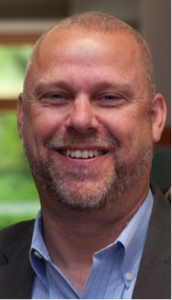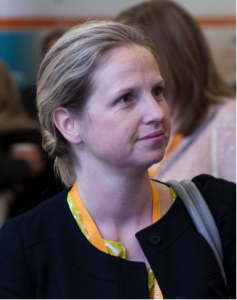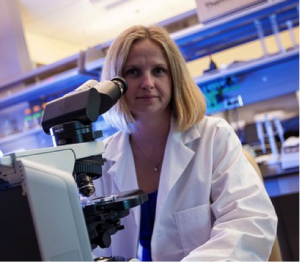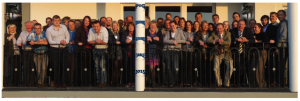Following a highly successful meeting held in Canterbury in 2014, the PGDIS bandwagon moved to Chicago for its 14th symposium. Celebrating the 25th anniversary of PGD being performed by the group of CISoR’s Professor Alan Handyside (at the Hammersmith Hospital), the meeting had both a nostalgic and clinical flavour.
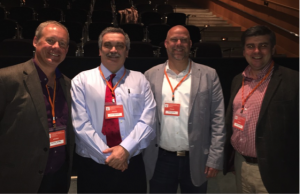
CISoR quartet. Darren Griffin, Luca Gianaroli, Gary Harton and Alan Thornhill
Due to being incapacitated with a broken leg, Professor Handyside could not make it to celebrate what he started back in 1990 but CISoR was well represented with Professor Darren Griffin chairing a session and new honorary appointees Professors Alan Thornhill and Luca Gianaroli plus Dr Gary Harton all taking prominent roles.
Representatives of CISoR’s “PhD by distance” programme were also in attendance including Tyl Taylor, Colleen Lynch and Tiffany Stankewich. Both Colleen and Tiffany gave oral presentations with Colleen benefitting from the prize she won at the last PGDIS (free registration and an opportunity to speak) and Tiffany giving her first (and very well received) presentation in an international forum.
Many of the newest technologies in PGD were covered including next generation sequencing (NGS) and Karyomapping – the Handyside/Harton/Thornhill/Griffin (+ colleagues) approach for universal detection of genetic disease. Perhaps the most moving story of the conference was however two families who underwent the “saviour siblings” form of PGD telling their personal stories. These included the Nash family, the first family to undergo this treatment, who told how the life of their daughter Mollie (pictured front centre) was saved by stem cells from the umbilical cord of her brother Adam (right of picture). Poressor Sally Sheldon’s work helped develop some of the UK legislation for saviour siblings based on the story of the Nash family.
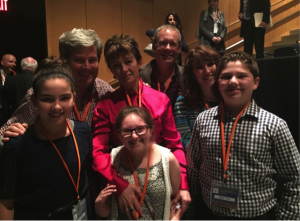
PGDIS president and treasurer Svetlana Rechitsky (in pink) and Darren Griffin with the Nashes, the original “Saviour Sibling” family.
CISoR is now well represented in the board of PGDIS with Alan Handyside now president-elect and Darren Griffin the treasurer of the society. Next year we move on to Bologna where our new recruit Luca Gianaroli will take the reins. In his speech to introduce the 16th PGDIS Luca presented a “survival guide to Bologna.” This principally involves being aware that Bolognaise sauce is never served with spaghetti (always tagliatelle), cappuccino should never been drunk after noon and limoncello never before 6pm.
CISoR would like to express its thanks to hosts Anver Kuliev (executive director of PGDIS) and Svetlana Rechitsky (president of PGDIS) for being such gracious hosts and making us all welcome.
